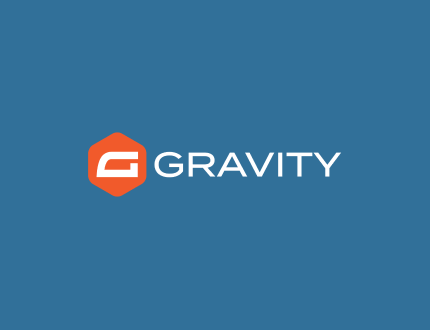What is a plugin?, where do you get them and when should you use them? in this Journal entry will deep dive into everything you need to know. Plugins can be used to perform a wide range of tasks, from adding a contact form to giving you e-commerce capabilities. In this post we will also review our ‘Top 5’ must have plugins.
A WordPress plugin is a piece of software that can be added to a WordPress website to extend its functionality or add new features. These plugins are created using the PHP programming language (the same language WordPress is built upon) and are designed to seamlessly integrate with WordPress.
Introduction
WordPress plugins work by tapping into the existing code of your WordPress website to provide functionality and features without altering the core code of the website and without (in most cases) having advanced technical knowledge.
As mentioned, these plugins can perform a wide range of tasks, such as adding new features, improving website performance, enhancing security, integrating with third-party services, and much more. They are designed to be modular and can be installed, activated, and deactivated with relative ease. You can find and install plugins directly from the WordPress Plugin Directory (within your CMS dashboard) or upload them manually if purchased from a 3rd party provider (of which there are many).
Given that WordPress has grown to become the most popular website building platform in the world, powering more than 45.8% of all websites (at time of writing) on the internet you wont be surprised to hear there are thousands of plugins available from free to paid and developed by freelancers to multinationals. Chances are you will find a plugin to do just about anything online function – but like everything there are plenty of pros-and-cons.
Firstly, lets talk about the ‘cons’
It’s important to note, not every task requires a plugin – if anything they should be kept to a minimum. Your WordPress website is a very powerful tool and often the functionality you’re trying to create with a plugin actually comes as part of the WordPress core. It’s also important to keep in mind that WordPress plugins can pose a security risk. Lets take a look at some key considerations before committing to a plugin:
- Bloating – adding plugin after plugin can bloat your website and this affects both performance and upkeep. The more plugins you have running the more this can impact performance and page speed. You also need to remember that plugins need to be maintained and updated on a regular basis. Keeping 5 plugins up-to-date is much easier then 25 (some basic math there)
- Security – possibly more important is to keep in mind that every additional plugin (and therefore line of code) could theoretically serve as a gateway for attacks. Especially if the plugin is outdated and therefore venerable.
Therefore, do your research!
Given there are so many plugins available finding the right one is a little like searching for a needle in a haystack. But by asking simple questions and taking a few moments to do some research can make a huge difference long-term. Here is how we at Big Dog approach this subject:
Do I actually need this plugin?
Ask yourself what value (considering the cons above) will this functionality give you – will it drive sales, leads and conversions? will your users interact with it and/or will it offer them some value to stay on your website or revisit? Can the feature be achieved using the core functionally of WordPress or via some small custom coding reducing the long term upkeep?
Who has developed the plugin and when was it last updated?
Has the plugin been developed by an independent/freelancer – not that this is a bad thing, but does the developer have time to maintain his or her work. Ideally, obtain plugins only from reputable sources such as the official WordPress plugin repository or trusted third-party developers. Has the developer built other plugins and what are the customer reviews like?
The date of the last update is one of the most important indicators of whether a plugin is being actively maintained and developed further. A few weeks or months is fine – but years is a different story for example a couple of years ago is out of the equation for us. Poorly coded or outdated plugins can create security vulnerabilities, making the website susceptible to attacks such as hacking, malware injection, and data breaches.
How many active installations and what about support?
The number of installations is another key indicator. While fewer installations are not necessarily a sign of a bad plugin – it does make you question, for example ‘is this perhaps a very new plugin and robustly tested’?
Choose plugins that are actively maintained and supported by their developers, as this indicates a commitment to addressing security issues. Does the plugin come with documentation and/or support forum?
Too many questions, aghhhhhhhh 🙁
Not really actually, I like to think of this as buying a cooker or dishwasher – you’re less likely to buy a brand no one has ever heard of, that has no reviews or installation instructions from a shop that only opened yesterday. The same logic should apply here.
Also, like buying a cooker or dishwasher it can be a simple task to look at these basic questions listed above. Even by going into your WordPress CMS > Plugins > Add New Plugin you get an excellent snapshot overview and a simple google of the plugin your considering will reveal a lot.

Our Top 5 Plugins
So, now that we have discussed what a plugin does, when you should use it and what to be aware of – lets look at Big Dogs top-5 plugins that we regularly use on WordPress websites!

Advanced Custom Fields (Pro)
ACF is the most-widely used plugin for creating custom fields and post types (for example a downloads section, team profiles, etc…). This plugin, which is well-known to most every veteran WordPress developer, turns WordPress into a robust content management system. ACF lets you quickly and easily add new custom fields to WordPress with just a few clicks. Build your field groups from over thirty different custom fields, add them anywhere in WordPress, and load and display them in any theme template file. Custom post types and taxonomies are an essential part of building custom WordPress sites, and ACF lets you add them directly from the plugin’s UI, eliminating the need to use a separate plugin or code them manually.
In summary, the Advanced Custom Fields plugin is a powerful tool for extending the functionality of WordPress by enabling users to easily create and manage custom fields, making it a valuable asset for web developers and content creators alike.
We use ACF in the vast majority of websites we build and have completed 197 installations to-date.

Yoast SEO (Free and Premium)
Yoast SEO is a popular WordPress plugin designed to help website owners optimize their sites for search engines. It provides a comprehensive set of tools and features to improve a website’s visibility and ranking in search engine results.
With over 5 million active installations, Yoast SEO is a widely used WordPress plugin, and it’s not limited to just SEO. The plugin’s extensive settings for individual pages and posts aid in enhancing SEO, boosting reader engagement, and attracting more social media visitors. In essence, Yoast SEO is a valuable tool for WordPress users seeking to enhance their website’s visibility and accessibility to search engines, ultimately improving the site’s potential for organic traffic and audience reach.
Yoast SEO Premium allows users to add more than one key-phrase and also has built in AI to assist in generating meta tags and descriptions. Like ACF it is widely used on most Big Dog websites.

Gravity Forms
A particular favourite at Big Dog, Gravity Forms is very popular form plugin that allows you to construct tailor-made forms and workflows. As a premium plugin, it offers wide flexibility allowing you to design a wide array of forms, including contact forms, quizzes, surveys, and beyond, seamlessly integrating them into your website.
The plugin supports integration with numerous third-party services and applications, including email marketing platforms, payment gateways, CRM systems, and more, facilitating seamless data transfer and workflow automation. Gravity Forms allows for the creation of dynamic forms that adjust based on user input, offering a personalized and interactive experience for form respondents.
In conclusion, Gravity Forms serves as a powerful tool for WordPress users to streamline the creation, management, and integration of various forms, empowering them to collect and process data efficiently.

Weglot Language Translations
This is a comprehensive website translation solution that offers a wide range of features to seamlessly translate and manage multilingual content.
Weglot Translate is one of the leading WordPress translation plugins with more than sixty thousand users globally. It enables easy multilingual functionality, allowing you to translate your WordPress website into dozens of languages without any coding. The plugin is optimised for multilingual SEO, ensuring all translated pages are indexed by Google, offers automatic detection and real-time updates, and facilitates collaboration with team members for multilingual translations.
Additionally, it provides an in-context editor, customisable language switcher, and seamless migration from other translation plugins.
This is a licence based service but one we feel it worth it considering the integration ease, tools and quality of translations!

WooCommerce
Finally, no plugin list would be complete without WooCommerce, this is a widely used open-source e-commerce plugin for WordPress. It was first developed in 2011 and is now owned by Automattic, the company behind WordPress.com.
WooCommerce is a powerful e-commerce solution that leverages the capabilities of WordPress to provide a flexible, customisable, and cost-effective platform for creating and managing online stores.
WooCommerce integrates with a large number of payment gateways and extension allow you to expand the functionality to almost any desired requirement for example subscriptions, extensive stock managetment shipping methods, and marketing tools.
With a large community of users and developers, WooCommerce provides robust support through forums, documentation, and third-party experts.
